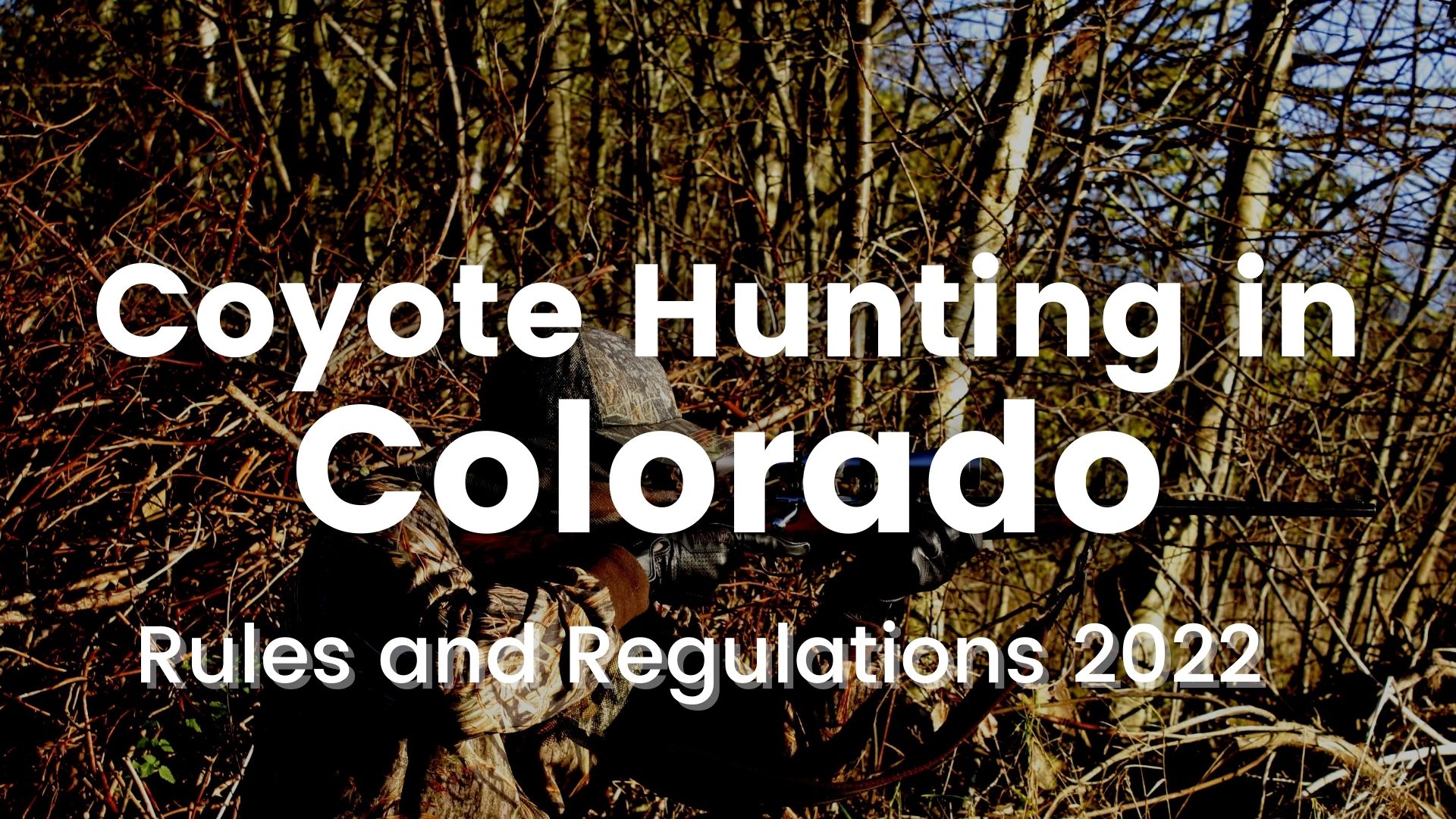

You have come to the perfect place if you want to start your coyote hunting quest in Colorado. Many people are attracted to Colorado’s wild because of its substantially growing forests and wildlife. With more than 23 million acres of public land, Colorado is an outdoor enthusiast’s paradise. This article goes into an in-depth analysis of laws and regulations regarding coyote hunting in the Centennial State of Colorado. Along the way, I will also try to answer a few frequently asked questions related to coyote hunting in Colorado.
The Department of Parks and Wildlife regulates all the coyote hunting activities in the state of Colorado. This department also acts as caretakers entrusted with conserving and protecting the natural resources, and the safety of the public while enjoying these resources to the people of Colorado. Furthermore, the department has classified coyotes as furbearers. This means hunting coyotes in Colorado has neither closed seasons nor bag limits.
In order to hunt coyotes in Colorado, you will need either a small-game license or a furbearer license. Unlike other furbearer animals, an annual furbearer harvest permit is NOT required to hunt coyotes in Colorado. Bear in mind, if you have an unfilled big-game license for the same season and unit, you may hunt coyotes without a small-game or furbearer license, during big-game seasons. You must use the same method of hunting for coyotes as your big-game license allows. Once the big-game license has been filled, hunters should purchase a small-game or furbearer license to continue hunting coyotes, and if using a rifle, make sure that it is .23 caliber or smaller.
You can purchase all the licenses and permits for coyote hunting in Colorado in person through hundreds of retailers or a CPW location. Furthermore, you can also get one completely online. You must carry and show the permit while hunting coyotes in Colorado if requested by a law enforcement officer.
There is no closed season for hunting coyotes in Colorado. That means, holders of a hunting license may hunt coyotes at any season. Furbearers can be hunted from half-hour before sunrise to half-hour after sunset but there is an exception for this law. Raccoons, bobcats, striped skunks, beavers, and red, gray, swift foxes, or coyotes can be hunted at night.
On private land, artificial light is allowed at night to hunt coyotes with the written permission of the landowner/agent. On public land, artificial light is allowed at night to hunt coyotes with a permit from the local district or area wildlife manager. Permits are valid for the time and place specified.
It’s illegal to hunt coyotes in Colorado with a light permanently attached to a vehicle or to project light from inside a vehicle.
Since coyotes are classified as furbearers, there are no bag limits for hunting coyotes in Colorado. You can hunt coyotes in Colorado all year round without having to worry about the seasons or bag limits.
Colorado offers premier coyote hunting habitat across its mix of high plains, brush lands, forests and mountains. Good public land access exists, with healthy coyote populations on Bureau of Land Management tracts, National Forests and State Wildlife Areas.
The eastern plains are a hotspot, with expansive prairies and farmlands holding large numbers of coyotes with food sources like livestock, prairie dogs and deer. Prime public destinations include Pawnee National Grassland, Comanche National Grassland and Rocky Mountain Arsenal National Wildlife Refuge.
Western Colorado also produces great coyote hunting access on public lands spanning the high desert plateaus towards the mountain ranges. Forested areas with meadow openings surrounding towns like Meeker, Grand Junction and Durango hold substantial coyote populations through the winter.
It is legal to use any rifle, handgun, shotgun, handheld bow or crossbow, live traps (limited to cage or box traps), air gun (pre-charged pneumatic air gun .25 caliber or larger) for coyote hunting in Colorado.
Electronic game calls are completely legal while hunting coyotes in the state of Colorado. Artificial decoys are also permitted.
Baits are a legal way to hunt coyotes in Colorado. Bear in mind, baits must be made solely of plants or animals. It cannot contain metal, glass, porcelain, plastic, cardboard, or paper. Wildlife used as bait can be carcasses or parts of legally taken furbearers, carp, shad, white and longnose suckers, and inedible parts of legally obtained game mammals, birds, or game fish.
It is illegal to hunt coyotes in Colorado’s public land within 500 yards of any other residence, building, campground, or in areas that put human safety at risk.
Dogs are allowed to hunt coyotes, but only to pursue, bring to the bay, retrieve, flush or point.
It is illegal to kill, capture, injure or harass coyotes in Colorado from a motor vehicle or an aircraft. Additionally, It is also illegal to operate aircraft with the intent to injure, harass, drive or rally coyotes. Colorado prohibits the discharge of firearms or the release of an arrow from a motor vehicle or an aircraft.
In Colorado, it is illegal to carry or have a firearm, except a pistol or revolver, in or on a motor vehicle unless the chamber is unloaded. While using artificial light from a vehicle, it is illegal to have a firearm with cartridges in the chamber or magazine or possess a strung bow unless the bow is cased.
It is illegal to hunt coyotes with a light permanently attached to a vehicle or to project light from inside a vehicle In Colorado’s public land.